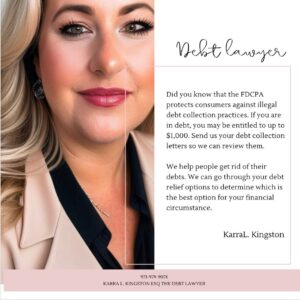Filing for bankruptcy can be a complex and emotional process, but it can also be the first step towards financial stability. If you live in North Bergen, NJ and are considering filing for bankruptcy, it’s important to understand the process and the options available to you.
Chapter 7 vs Chapter 13 Bankruptcy
There are two main types of bankruptcy that individuals can file for: Chapter 7 and Chapter 13. Chapter 7 bankruptcy is sometimes referred to as a “liquidation” bankruptcy, because it involves selling off assets to pay off creditors. Chapter 13 bankruptcy is sometimes referred to as a “reorganization” bankruptcy, because it involves creating a repayment plan to pay off creditors over a period of time.
The first step in filing for bankruptcy is determining which type is right for you. In order to file for Chapter 7 bankruptcy, you must pass a “means test” which compares your income to the median income in New Jersey. If your income is below the median, you may be eligible to file for Chapter 7. If your income is above the median, you may still be eligible to file for Chapter 7, but it will depend on a number of other factors, including your expenses and debts.
If you are not eligible for Chapter 7 bankruptcy, you may be able to file for Chapter 13 bankruptcy. In this case, you will work with a bankruptcy trustee to create a repayment plan that lasts between three and five years. During this time, you will make monthly payments to the trustee, who will then distribute the funds to your creditors.
Filing for Bankruptcy in North Bergen, NJ
Once you have determined which type of bankruptcy is right for you, the next step is to file a petition with the bankruptcy court. In North Bergen, NJ, the bankruptcy court is located in Newark, NJ. You will need to provide a variety of information on your petition, including a list of all of your creditors, a list of all of your assets and liabilities, and a statement of your income and expenses.
After you file your petition, you will be required to attend a meeting of creditors, also known as a 341 meeting. This meeting will be conducted by a bankruptcy trustee, and you will be required to answer questions about your finances and the information on your petition. Creditors may also attend the meeting and ask questions.
If you are filing for Chapter 7 bankruptcy, the trustee may sell off some of your assets to pay off your creditors. However, there are certain exemptions that may allow you to keep certain assets, such as your home, your car, and your personal property.
If you are filing for Chapter 13 bankruptcy, you will be required to make monthly payments to the trustee for a period of three to five years. During this time, you will be able to keep your assets, but you will need to live within a strict budget and make all of your payments on time.
Conclusion
Filing for bankruptcy can be a diffi cult decision, but it can also be the first step towards financial stability. If you live in North Bergen, NJ and are considering filing for bankruptcy, it’s important to understand the process and the options available to you. A bankruptcy attorney can help guide you through the process and ensure that your rights are protected.
cult decision, but it can also be the first step towards financial stability. If you live in North Bergen, NJ and are considering filing for bankruptcy, it’s important to understand the process and the options available to you. A bankruptcy attorney can help guide you through the process and ensure that your rights are protected.